Problem-Solving Skills Normal Reading Worksheets for Ages 8-9
9 filtered results
-
From - To
Enhance your child's critical thinking with our Problem-Solving Skills Normal Reading Worksheets, specifically designed for ages 8-9! These engaging worksheets encourage young learners to tackle challenges through fun, relatable scenarios that stimulate analytical thinking and decision-making. Each worksheet includes reading passages followed by thought-provoking questions that promote comprehension and reasoning. Perfect for classroom use or at-home learning, our resources are aligned with educational standards to support your child’s academic growth. Foster a love for reading while developing essential problem-solving skills that will benefit your child in and out of school. Explore our collection today for a brighter, smarter future!
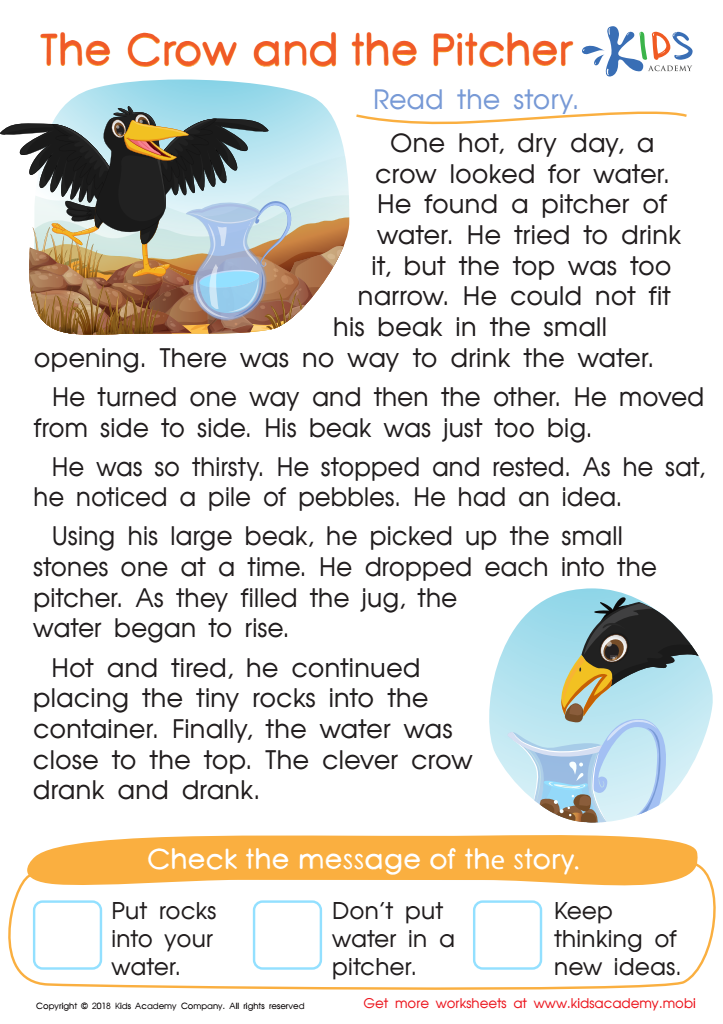

The Crow and the Pitcher Worksheet
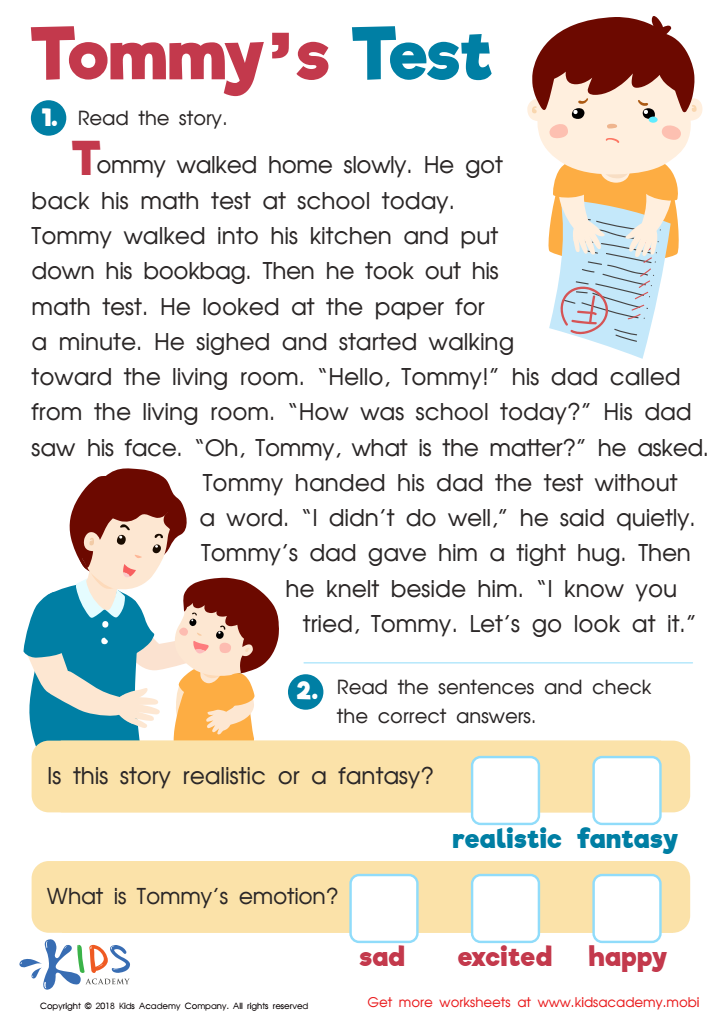

Tommys Test Worksheet
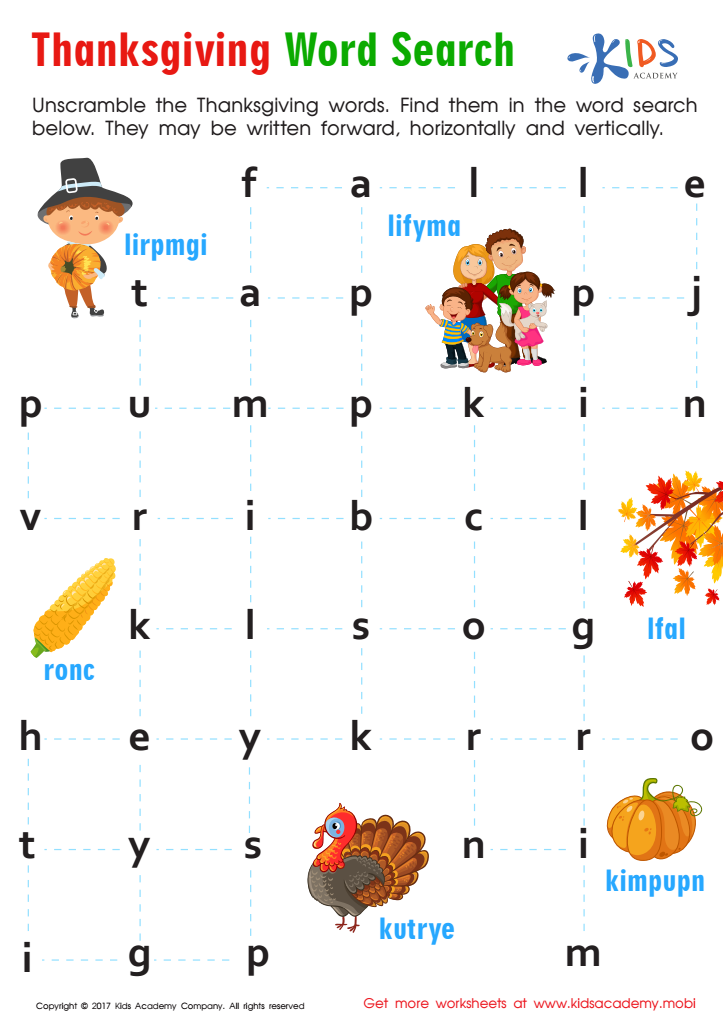

Thanksgiving Word Search Sight Words Worksheet
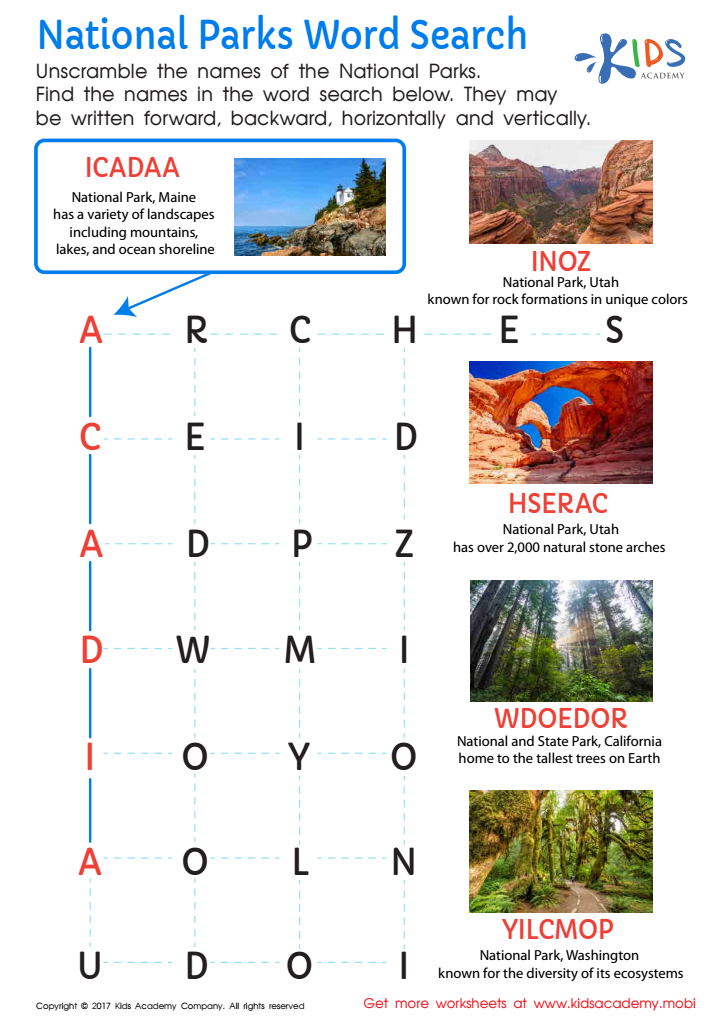

National Parks Word Search Worksheet
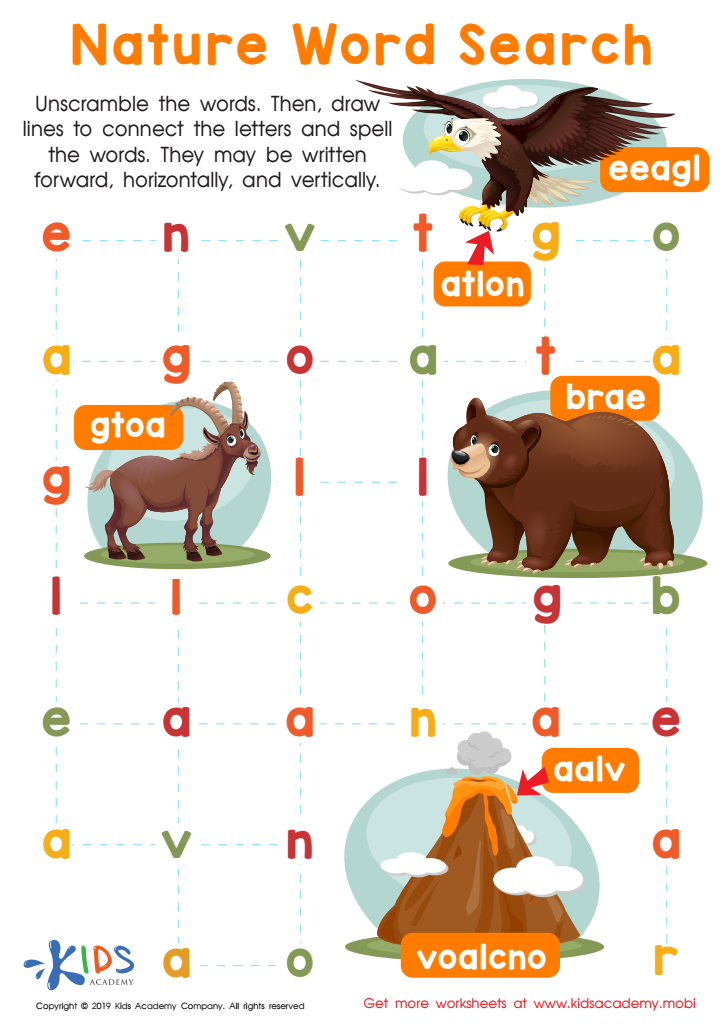

Nature Word Search Worksheet
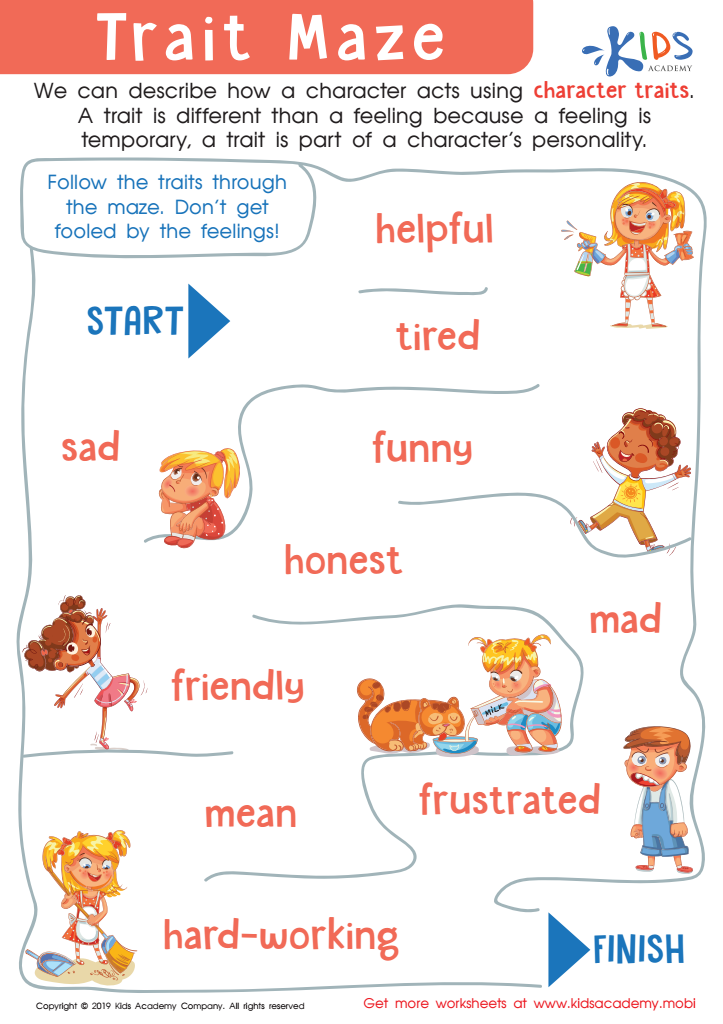

Trait Maze Worksheet
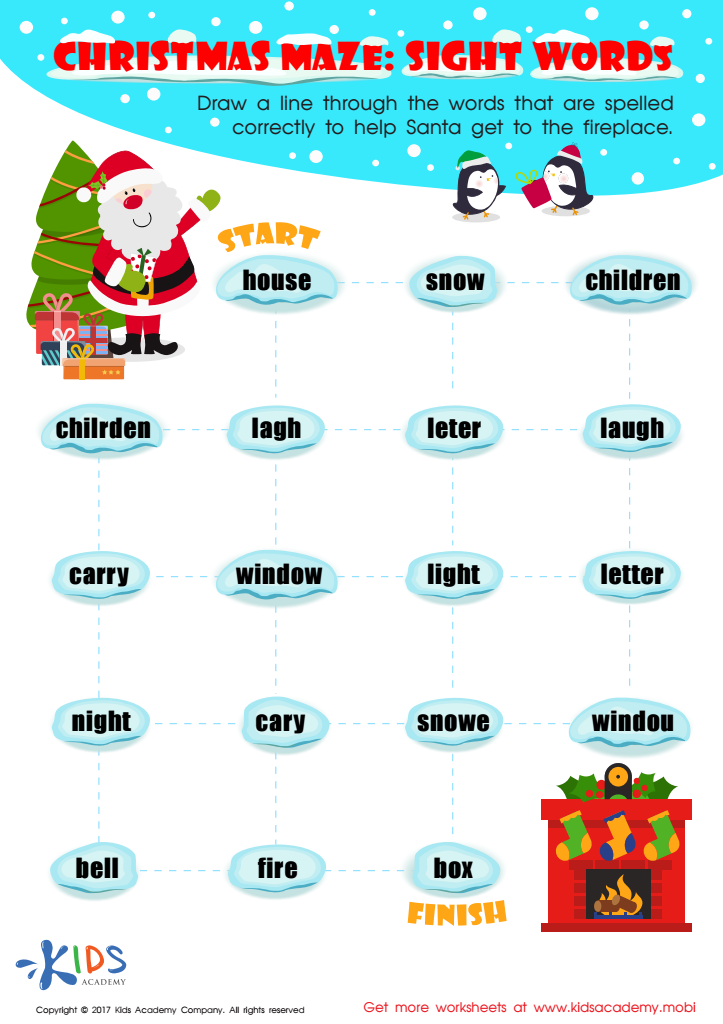

Sight Words Christmas Maze Printable
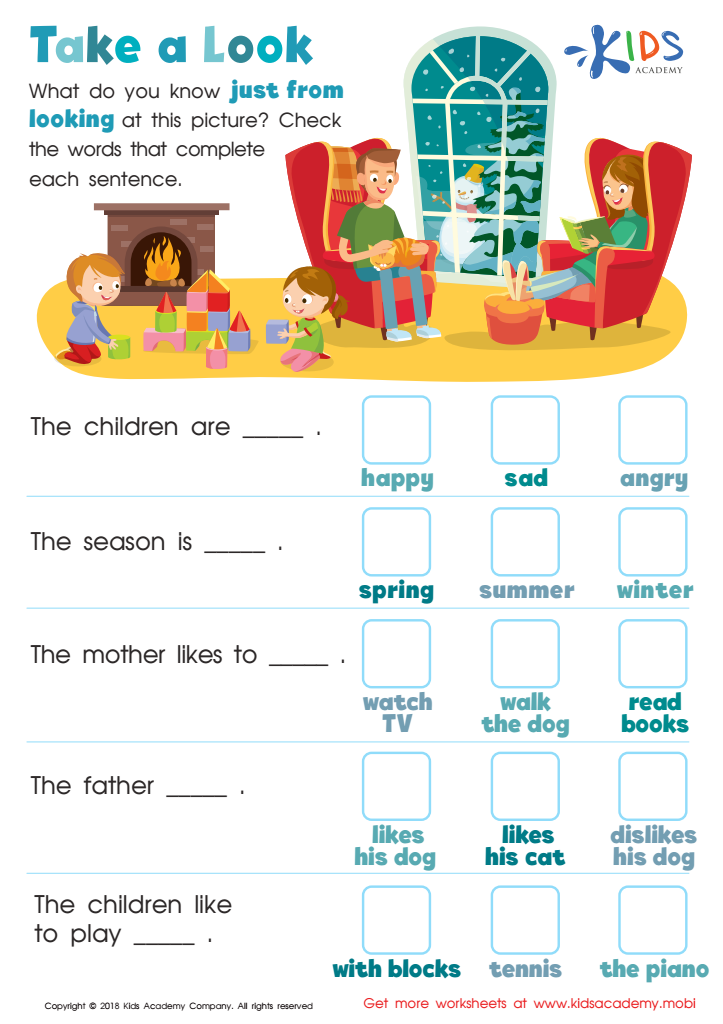

Take a Look - Part 1 Worksheet
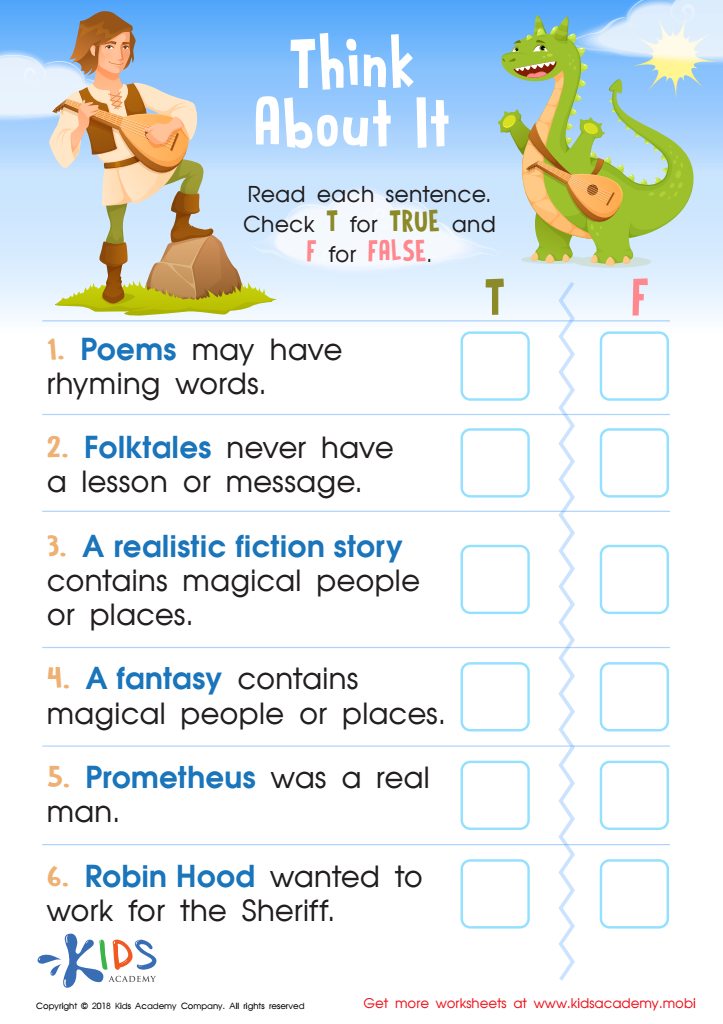

Think About It: Assessment Worksheet
Parents and teachers should prioritize problem-solving skills for children ages 8-9 because these skills are foundational for both academic success and everyday life. At this stage, children are developing critical thinking abilities and learning how to analyze situations. Strong problem-solving skills help them approach challenges logically and think creatively, making them better equipped to handle complex tasks in subjects like math and science.
Moreover, effective problem-solving promotes perseverance. When children learn to break down problems into manageable steps and to view failures as learning opportunities, they develop resilience. This is crucial not just in school, but also in future endeavors where they will face challenges, such as secondary education and eventually in the workplace.
Additionally, teaching children problem-solving skills fosters collaboration and communication, as they often work in teams to find solutions. These social skills are vital for building healthy relationships and thriving in group settings.
Finally, instilling problem-solving skills in young learners encourages curiosity and a love for learning. When children confidently tackle problems, it fuels their motivation and engagement, leading to a positive attitude toward education overall. Thus, nurturing these skills should be a priority for parents and educators alike.
 Assign to My Students
Assign to My Students
















